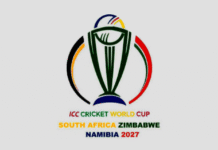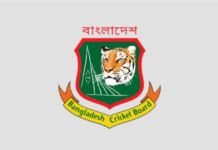The continual delay of the Dhaka Premier Division Cricket League has caused issues for Bangladesh cricket’s development programme
Bangladesh cricket’s development programme has been adversely affected by the five-month delay in the 2012-13 Dhaka Premier Division Cricket League (DPL), after the National Cricket Academy (NCA) player intake for 2013 remained deferred for almost the same period. Dhaka’s club-based one-day tournament has so far been set back four times, the latest date proposed by the Bangladesh Cricket Board (BCB) being an August 29 start, and is likely to be skipped this year.
According to NCA’s head coach and manager Richard McInnes, the ideal schedule will run the course of the Bangladesh off-season (between March and September) so that the young cricketers can be well prepared ahead of the domestic season and vie for places in the Bangladesh A team. Since the DPL did not take place in March, the NCA programme followed suit, as it needed the players to be free of professional commitments.
The NCA management would not announce the name of the players unless it was confirmed they would be free of any other commitments. McInnes also pointed out that the DPL’s delay was one of the main reasons for the hindrance in the full-time academy programme.
He said that the coaching staff has remained busy with the other programmes that are organised by the NCA, but the BCB management structure is designed in a way where it can only handle ‘one issue at a time’.
“In terms of a full-time academy programme, unfortunately we have not been able to run a full programme for various reasons, including the uncertainty surrounding the DPL,” McInnes said. “I don’t think there has been a lack of activity overall. I certainly feel like all the staff, including myself, have been very busy with under-age camps, coach education programmes and supporting the national teams in the various formats.
“The board members are committed to cricket in Bangladesh. As I have mentioned previously, given our management structure, we only seem to be able to deal with one issue at a time, which in a business as big as cricket, does not allow us to be as agile and effective as we need to be.”
The NCA’s training programme had become an integral part of player development in Bangladesh, having only just gathered steam over the last two years. The acquirement of a separate academy and cricket ground adjacent to the Shere Bangla National Stadium in Mirpur boosted its importance, particularly to cricketers who have crossed the Under-19s, the last stage of the age-group system.
The programme was formerly known as the High Performance (HP) unit, and it flourished between 2003 and 2005 when McInnes was in charge. His exit stalled the HP programme, before the BCB converted it to the present-day NCA, but it still took a few years before it was resourceful enough to run a full-time training programme.
Australian Ross Turner ran the 2011 programme smoothly with 24 cricketers. When he quit his post, a lull ensued before McInnes was brought back alongside Stuart Karpinnen, the former Australia strength and conditioning coach, as trainer. Senior Bangladesh cricketers like Mashrafe Mortaza has already praised the coaching staff as being ideal for the NCA. McInnes has so far overseen one training camp with 10 players, after which the West Indies High Performance group toured the country to play against NCA in September last year.
The only bright spot for the NCA this year is the imminent ACC Emerging Teams Cup, to be held next month in Singapore. According to McInnes, the Bangladesh Under-23 side, which will take part in the tournament, is among those who would have been the NCA’s intake for the year.
BCB’s ad-hoc committee member Gazi Ashraf Hossain has said that the board is likely to confirm tours to South Africa and Zimbabwe for the NCA. South Africa and West Indies have had exchange programmes at this level with the BCB in the past, with the last of these tours taking place last year when the West Indies High Performance side toured Bangladesh.
The NCA is a vital source of Bangladeshi cricketers, and has helped the selectors find more prepared players rather than blooding teenagers, as was the case for several years after it gained Test status. A lack of continuation in its full-time programme would hold back the development process in Bangladesh cricket.
Source: Espncricinfo










